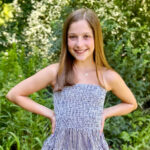Going into science: Women scientists at Boston Children’s offer advice to girls
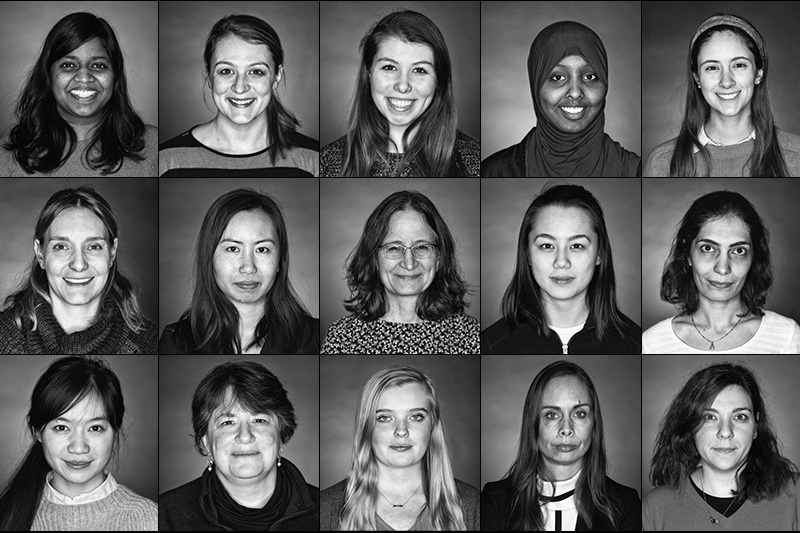
In honor of the International Day of Women and Girls in Science (February 11), we invited women scientists at all stages of their careers at Boston Children’s Hospital to share their scientific agendas. Here is some of what they had to say.
The scientists also offered their advice for girls interested in entering the field. Scroll down for more of their perspectives.
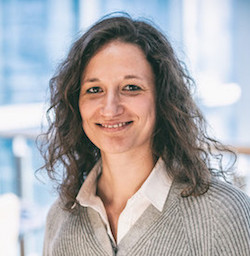
Sara Bizzotto, PhD, a research fellow in Genetics and Genomics, is seeking the genetic causes of brain malformations and epilepsy.
Don’t be afraid. Go into science because it is an amazing world, and you have the chance to travel and meet people of all different cultures. I suggest not to be shy.
Speak up, and don’t be afraid of taking credit for the work you do.
Catherine Brownstein, MPH, PhD, is scientific director of the Manton Center for Orphan Disease Research. Her work centers on rare and orphan disease gene discovery, with a focus on psychiatric disorders in children.
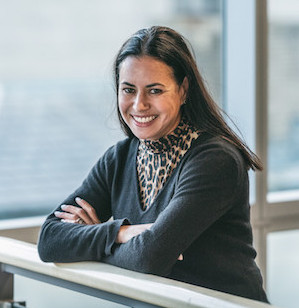
At Yale, I waited in the rain for three hours to meet Jane Goodall. She said, “When are you going to do something with your life?” That inspired me to get my act together and finish my PhD program.
Being different can be an asset. If everyone in the room sees something one way, and you see it in a different way, that’s going to improve the experience for everyone.
If you introduce yourself to someone who’s met ten men but only two women, that’s an advantage. Embrace it.
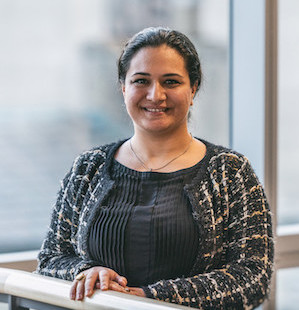
Diden Demirbas Cakici, PhD, a research fellow in the Division of Genetics and Genomics, models galactosemias and other metabolic disorders in cells.
As women, we don’t speak up as much as we should, and that makes it harder in terms of visibility.
Follow your heart, and try to find an opportunity, just any opportunity.
Find what sparks your interest, and tirelessly work on that.
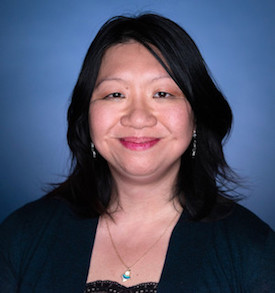
Ai Wern Chung, PhD, a research fellow in the Fetal/Neonatal Neuroimaging and Developmental Science Center, uses brain MRI images and mathematical models to understand the brains of adolescents with autism, adolescents with a traumatic brain injury, and adults with congenital heart disease.
Women bring something that is needed. I think we are potentially more collaborative and are more open to working with one another, and that’s important when we’re trying to address important questions in science.
Most important is to identify what your strengths are, to enjoy learning new information, and to know what you want to do with it to make a difference.
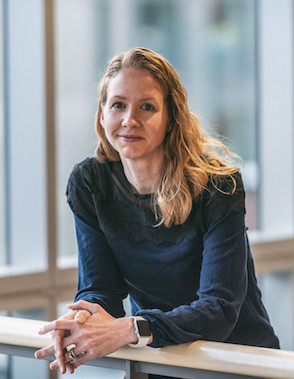
Christy Cummings, MD, is a neonatologist whose research focuses on the moral, human aspect of medicine. She has created evidence-based curricula for neonatologists promoting ethics, professionalism, and shared decision-making. Her recent work has focused on how to improve prenatal consultations for families anticipating very premature deliveries.
I was born two months premature, a quadruplet. I wanted to give back the excellent care that I received as a newborn. Coming here was like coming full circle.
Seek to find the answers to your questions through the right mentors and sponsors and like-minded people to support you through the process. Success is rarely a straight line. There’s always ups and downs along the way.
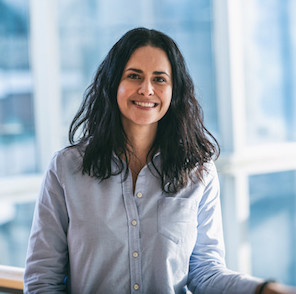
Juliana Xavier Ferrucio, PhD, a research fellow in Hematology/Oncology, studies hematopoietic stem and progenitor cells, which form blood, and their role in disease.
Have a strong will, and never listen if someone tells you science is not for girls. Since I was a little girl, I wanted to be a scientist. I was in that generation that saw Dolly the sheep on TV and was like, “I want to do that!” The first step is being curious and thinking about what motivates you and what questions you want to answer in a different way.
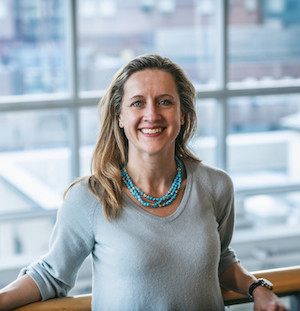
Mariella Filbin, MD, PhD, heads a lab that does research on deadly pediatric brain tumors such as glioblastomas, with the goal of finding new targeted therapies.
Follow your passion and don’t let anyone discourage you — people will try. I had young children at the same time as opening my own lab. It was difficult, but I would encourage people to do both. Having female scientists in my lab is very important to me, and we echo each other’s experiences. Even though I’m the principal investigator, I share a lot of my stories and get advice back. I’m hoping that by the end of my career we won’t have to talk about this anymore, but until we get there, we have to keep pushing.
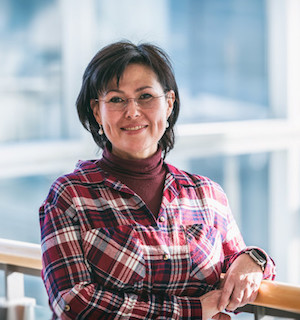
Carolina Garcia de Alba Rivas, MD, PhD, is a research Fellow in the Stem Cell Program, investigating lung stem cells and their potential in treating idiopathic pulmonary fibrosis, a progressive lung disease.
I wanted to go into science since I was 6 years old. I grew up in Mexico, and my dad worked in a school for agriculture. Whenever an animal had a sick baby, he brought it home for us to take care of. I always wanted to know why those baby animals were sick and how I could save them. That is something that is still a part of me.
Never take a no for an answer, and never, ever think that something is impossible. We just have to find a way to make it possible.
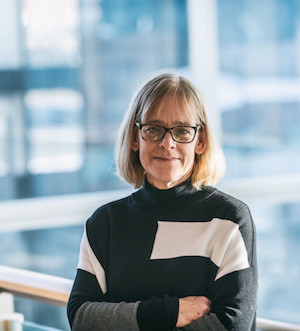
P. Ellen Grant, MD, is director of the Fetal-Neonatal Neuroimaging and Developmental Science Center. She develops imaging tools to help understand the origins of disease, to optimize therapy, and to improve outcomes for newborns.
Be true to yourself in finding what catches your interest. Don’t be discouraged if it doesn’t fall into a clear category.
The research of the future hasn’t been done yet, so things that start to catch your interest might be from different areas that you’ll be the first to combine. Don’t be afraid to step into new territory.
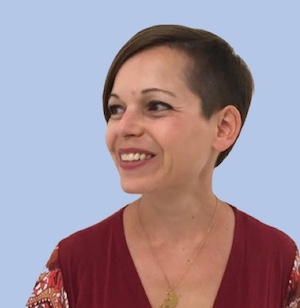
Naama Kanarek, PhD, heads a lab that studies cancer metabolism, and specifically metabolism of folate, an essential vitamin, in cancer and autoimmune diseases.
Find role models. Don’t get intimidated by people who think they are better than you. I’m trying to create a different environment in my own lab right now that supports women in research. When I was a single mom doing my postdoc, I became part of a support group of female postdocs who were also moms, which was fantastic. To be able to bring challenges to that group and discuss them was very empowering.
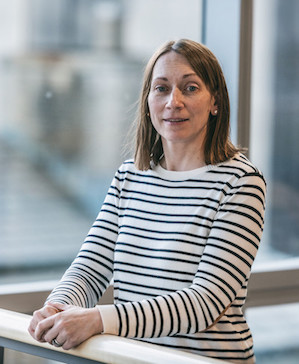
Carla Kim, PhD, heads a lab in the Stem Cell research program. She is pioneering stem cell biology approaches to study lung disease.
Try to get as many experiences as you can so you can figure out what you like. Shadow as many people as you can.
I don’t think there are many barriers until you get to a higher level. That’s when it’s much easier to see the differences.
Women need to keep interacting with people as much as possible and make sure they’re part of the same conversation.
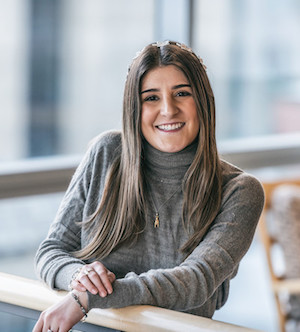
Nicole Manfredonia is a research assistant who studies HIV vaccines in the Program for Cellular and Molecular Medicine.
As a kid I always wanted to know more. I think the ability to keep questioning things, and to not accept an answer for what it is, translates a lot into science. Being able to form hypotheses and to test them is really interesting and something that keeps me really entertained.
I have noticed that when I’m speaking, I have to demonstrate that I’m confident in what I’m saying. Otherwise people tend to look the other way. I need to project my voice and act in a way that demonstrates confidence.
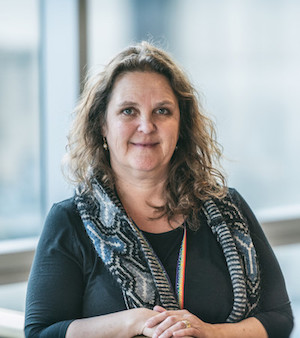
Alisa Miller, PhD, a psychologist at the Refugee Trauma and Resilience Center, studies how trauma and cultural factors impact youth development, and how cultural factors can reduce the impact of trauma in the migration journey and promote resiliency.
Allow yourself to be outside of your comfort zone. Not knowing is actually key.
Push yourself to meet people who are different than you are, at all different levels, and to make meaningful connections across your profession — from those who are senior in the field all the way to the people you want to impact.
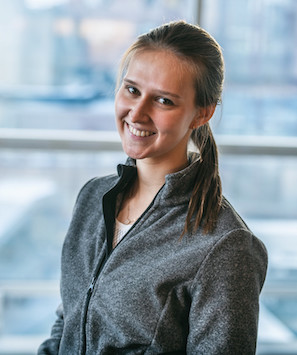
Alina Ruhmkorf, a graduate student in Neurobiology, is interested in the cilia, hair-like projections found on various kinds of cells in the body. In some people with autism, there are fewer cilia in the brain, and Ruhmkorf is now trying to characterize the role of cilia in neuron.
As a woman in science, you have to plan your career really well. You should do something you are really interested in because you’re going to spend a lot of time with it. Your kids have to fit in somewhere, and when you’re pregnant you can’t work in the lab because of the hazards. In the lower levels, there are many more women, but when you get to the upper levels, way more of the professors are male. So it’s a challenge to establish yourself.
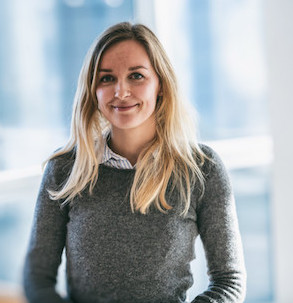
Barbara Robens, PhD, is a postdoctoral research fellow in the Department of Neurology. She is investigating genetic causes of epilepsy that could lead to new treatment options.
Be a self-starter. Use your own head, and don’t wait until people tell you what you should do.
Do what you love, and be passionate about it. Ask a lot of questions, and don’t be afraid of doing that.
Just go out there, be yourself, and talk to people.
Discover research at Boston Children’s Hospital
Related Posts :
-

The ‘Trach Chapter’: Isabella’s journey with bronchopulmonary dysplasia
Isabella’s life has been anything but ordinary. Born at just 27 weeks gestation and weighing only 1 pound, 4 ounces, Isabella has ...
-

‘Challenge accepted’: Sophia takes on a brain tumor
In 2023, Sophia Mordini landed the role of a lifetime. A competitive dancer, the 12-year-old would play Clara in her company’...
-

A true hero’s journey: How a team approach helped Wolfie overcome pancreatitis
Wolfgang, affectionately known as “Wolfie,” is a bright and energetic 7-year-old with a quick wit and a love for making ...
-

Four things you should know about MAPCAs treatment
As the first grandchild in her family, Hannah Homan is in demand for frequent visits. She was also the focus ...



